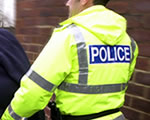 Go to main content
Go to main content
Archive Website of the UK government
Please note that this website has a UK government accesskeys system.
Main menu
Page menu
Crime and justice

What to expect from the police

When you encounter the police, you should expect the same level of quality service wherever you are in the country. All police forces must follow many of the same national guidelines. Find out what you should expect from them.
What to expect at local police stations
Each police force is divided into units, each one of these has a different speciality. So some police officers walk a beat, others investigate traffic accidents and others handle major crimes.
Most people encounter the police at their local station, when they stop in to report a crime or ask for information.
At most police stations, you’ll find a helpdesk, which can be run by civilian police staff or police officers. Anyone who sits at the desk will be trained to deal with your questions, and to help you with any problems you have.
If you have general questions about the police and how they work, the police frequently asked questions website can be a good first stop.
Your rights if you’re arrested
If you’re arrested, your rights are protected, and the police must follow the rules set out in the Police and Criminal Evidence (PACE) codes. This code explains how the police must treat you, and what rights you have.
It says, for example, that you have the right to speak with a solicitor and inform a family member or friend that you’ve been arrested.
You can read about the PACE codes on the Home Office website.
 Facebook
Facebook Twitter
Twitter StumbleUpon
StumbleUpon Delicious
Delicious Reddit
Reddit